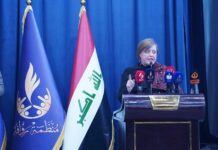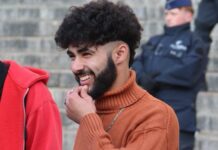
Hundreds of people gathered outside the Bundestag in Berlin, Germany on Friday, 28 June in protest of the German parliament’s anti-BDS resolution and ongoing anti-Palestinian repression in Germany. Called under the banner of Palästina Spricht (Palestine Speaks), the demonstrators vowed that they would not be silenced in the face of increasing assaults on Palestinian rights.
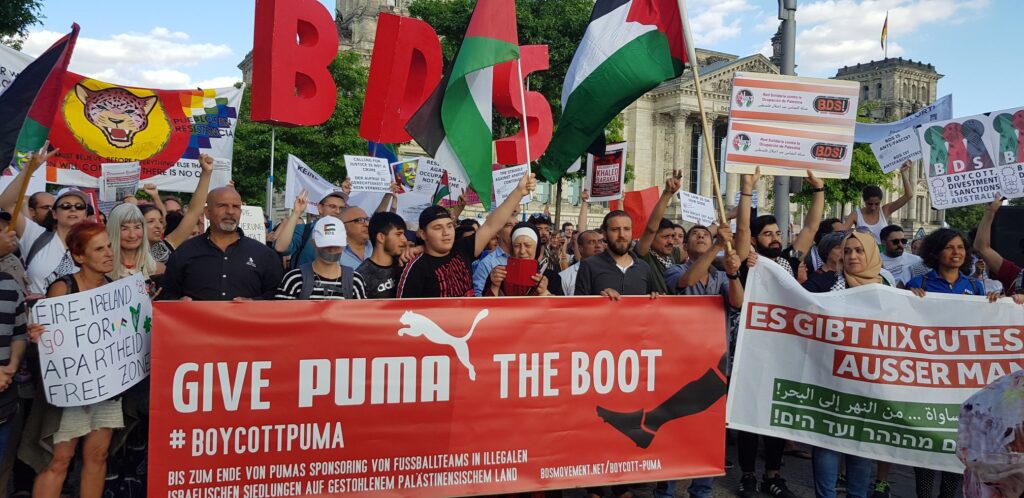
Speakers carried signs and banners supporting the boycott, divestment and sanctions (BDS) movement, including representatives of BDS Berlin, who carried three large letters reading “BDS.” This Palestinian call for international action urges people and organizations around the world to boycott, divest from and sanction Israel and its complicit institutions and multinational corporations until basic human rights of the Palestinian people are implemented: namely, ending the occupation and dismantling the apartheid wall, implementing full equality for Palestinian citizens of Israel and implementing Palestinian refugees’ right of return. Participants expressed their strong support for the campaign, chanting “Free, free Palestine!” and “Yes, yes, BDS!”

On 17 May, the German Bundestag passed an anti-BDS resolution that falsely equated this Palestinian movement with anti-Semitism. A series of anti-Palestinian resolutions were proposed by the various political parties in the Bundestag after the extreme-right AfD along with the ultra-capitalist FDP kicked off this particular attack on Palestinians with a proposal to ban the BDS movement. This decision has been widely condemned by Palestinian and international rights advocates, as well as by Jewish and Israeli scholars.

However, the anti-BDS resolution is not an outlier but reflects an ongoing and escalating campaign to criminalize Palestinians and Palestine organizing in Germany. Most recently, Palestinian writer Khaled Barakat has been subjected to a political ban, forbidding him from speaking or attending meetings or demonstrations – like this one – under threat of a year in prison if he fails to comply. Samidoun members and other participants in the demonstration carried signs highlighting his case, reading “Solidarity with Khaled Barakat!”

One of the speakers at the rally, Majed Abusalama, a Palestinian activist from Gaza in Berlin, highlighted a series of repressive actions targeting Palestinians and their supporters in Germany in addition to the anti-BDS resolution, including:
- the political ban imposed on Khaled Barakat and the prohibition of his speaking event
- the criminal prosecution of three activists, a Palestinian and two Jewish Israelis, for interrupting an Israeli official and Knesset member involved in Israeli war crimes in Gaza and international anti-BDS pressure (the Humboldt 3 case)
- the closure of the bank account of Jewish Voices for Peace in the Middle East, the first closure of a Jewish organization’s bank account in Germany since the Holocaust
- the deportation and silencing of Rasmea Odeh and the prohibition of the event featuring her and Dareen Tatour
- the forced resignation of the director of the Jewish Museum after he tweeted a link to an article discussing the hundreds of Jewish signers of a statement opposing the anti-BDS Bundestag resolution
- the massive police raids on leftist activists formerly associated with Jugendwiderstand (Youth Resistance) for allegedly defending a Palestinian speaker’s event and taking action against an overt Nazi demonstration (the Rudolf Hess Memorial March)
- the disinvitation and exclusion of prominent international artists for their support for Palestinian human rights, most recently American rapper Talib Kweli

Participants in the demonstration collectively called out “Thank you, Talib!” saluting the rapper for his clear solidarity for Palestinian rights and his principled stand to refuse silence on BDS and Palestine, even at the price of seeing his own performances and festival invitations cancelled as a result.
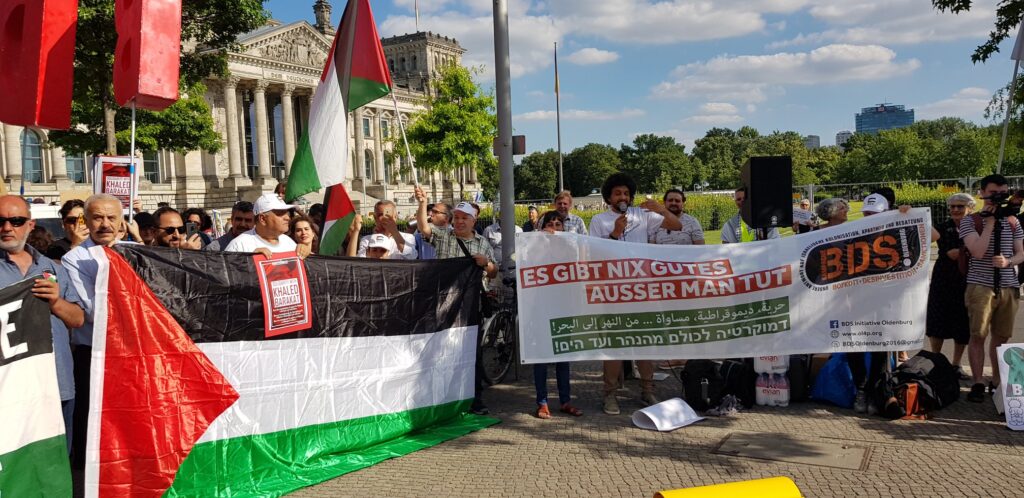
It should be noted that the demonstration was pushed by police to a side area of the Platz der Republik while a tiny pro-apartheid counter-protest was instead given the prime location in the plaza directly in front of the Bundestag to wave a few Israeli flags.
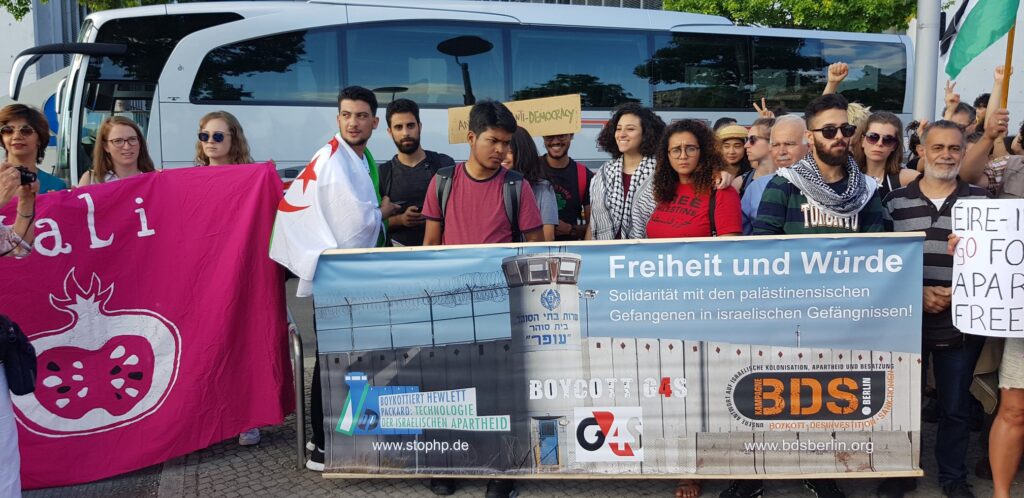
The protest included a flash mob, where “We Shall Overcome,” a classic Black song of the U.S. civil rights movement was played, as participants kept tape over their mouths while raising “victory” signs, representing resistance to the intended silencing of the Palestinian people and the Palestine movement in Germany. After the song, the participants collectively tore off the tape, shouting, “Free, free Palestine!”

Organizers emphasized that this protest was only the beginning of an escalating campaign to defend Palestinian rights in Germany and to secure liberation and justice in Palestine, with further protests and actions to take place in the coming months.
Video:



Discover more from Samidoun: Palestinian Prisoner Solidarity Network
Subscribe to get the latest posts sent to your email.

